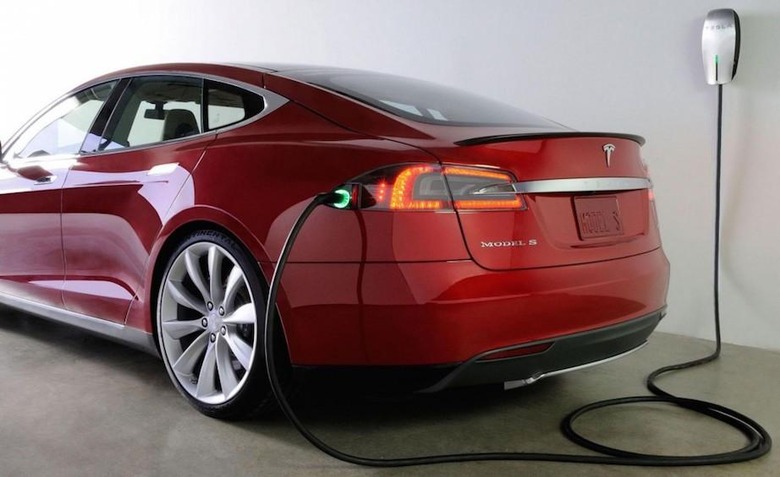Tesla on offensive against NHTSA gag-order allegations
Tesla has come out fighting against reports that the automaker is trying to cover up car safety issues, and prevent owners from discussing them with federal safety agencies. The accusations came following a report of a broken suspension system in an out-of-warranty Model S, which Tesla offered to help pay for repairs on as part of what the company says now was a "goodwill gesture" to the owner.
Part of that gesture, however, the owner told the Daily Kaban, was signing what was described as a "non-disclosure agreement" that, according to their interpretation, was intended to prevent any discussion of potential suspension component flaws with regulators such as the NHTSA.
The NHTSA relies on owner reports to build out its complaint database and flag up any issues which could have broader implications. If sufficient reports are found, the automaker is required to provide a no-cost fix.
According to Tesla, in a blog post today, the reality of the agreement is that it's designed to protect them in court, not from safety investigators. The goodwill agreement's terms that owners "will not commence, participate or voluntarily aid in any action at law or in equity or any legal proceeding against Tesla or related persons or entities based upon facts related to the claims or incidents leading to or related to this Goodwill" is intended to indemnify the company's offer from being "used against us in court for further gain."

Of course, though the agreement makes no specific mention of the NHTSA or any other agency, it also doesn't make clear that Tesla doesn't consider them to fall under the contract's scope. That's something the NHTSA has voiced concerns about in a statement, and something the automaker says it will be looking at improving:
"We will take a look at this situation and will work with NHTSA to see if we can handle it differently, but one thing is clear: this agreement never even comes close to mentioning NHTSA or the government and it has nothing to do with trying to stop someone from communicating with NHTSA or the government about our cars" Tesla Motors
What it insists does not need improving, however, is the suspension system itself. Referring to the specific vehicle in question, Tesla concluded that it had "experienced very abnormal rust" as a result of 70,000 miles of heavy usage including "down such a long dirt road that it required two tow trucks to retrieve the car" from the owner's home.
Contrary to initial reports that the NHTSA had opened an investigation, Tesla says that during a "routine screening" the safety agency had requested more suspension information from the company, later concluding that no further data was required.
Tesla goes on to suggest that the initial report of the problem, and speculation about non-disclosure agreements, could have been motivated by hopes to short the company's stock, or by a writer with an axe to grind against the automaker.
With the greater attention in recent months on car recalls and safety updates, fueled by broader issues across the industry such as the Takata airbag problem, the role of the car-owning public in flagging issues to the NHTSA has never been more under scrutiny.
Right now, that involves filing a report at SaferCar.gov, which is also where owners can check – using their car's VIN, the unique identification number each is assigned – if any outstanding recalls apply to their vehicle.
Just how many drivers actually know about the site is questionable, however, not to mention the role individuals play in logging claims, and the implications of those reports.
Given that the sort of flaws the NHTSA is instrumental in catching and getting fixed are only going to become more important – the FBI warned earlier this year that subpar auto electronics could leave doors open to hackers remotely damaging vehicles – it seems like it could be time to make the safety defect reporting process more user-friendly.
SOURCE Tesla
MORE Daily Kaban
